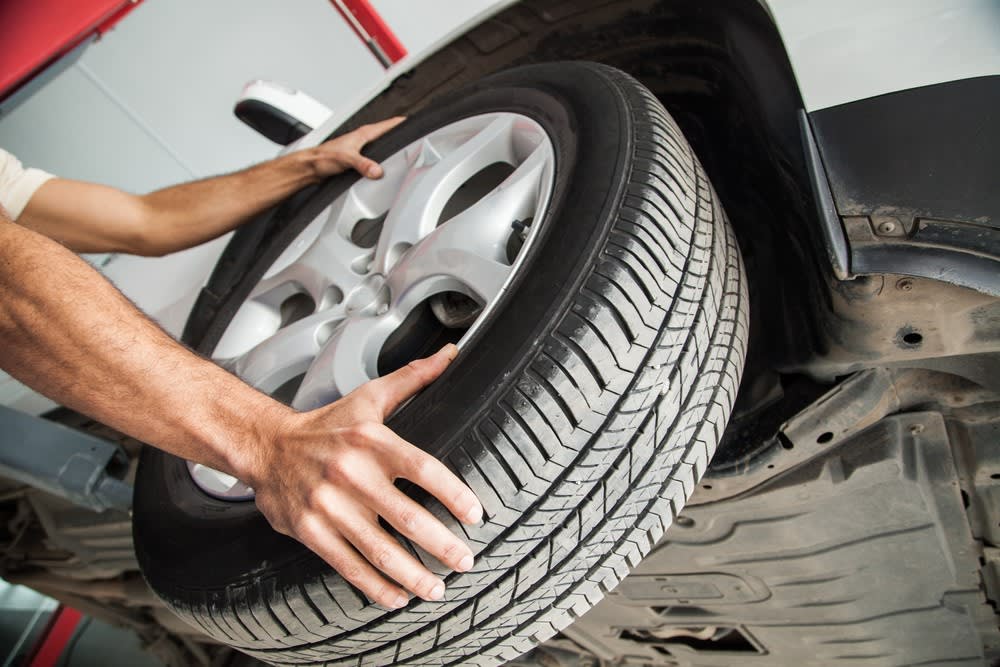

How often should you rotate tires?
You should rotate your tires every 5,000 to 8,000 miles. However, each manufacturer has recommended tire rotation intervals listed in their owner’s manual, dependent on the vehicle’s design and purpose. If you are advised that the tires on your vehicle need to be rotated before your recommended interval due to their condition, it would be a good idea to heed the recommendation.
Since this is one of the most common recommended maintenance procedures, there are several other questions commonly asked:
- What is it all about?
- Why do I need to perform it?
- Is it necessary or just a cash grab?
You should be aware of the recommended maintenance your vehicle requires and how often it should be performed. Here's what you need to know about rotating your tires.
Why rotate my tires?
Your tires are a safety system on your vehicle. They maintain traction with the road, which means you can keep your car going in the direction you want it to go. If your tires can’t get good traction, you may begin to skid or slide and end up in an accident or going off the road.
As you drive, your tires wear. In nearly all vehicles, the tires on the primary drive wheels wear predominantly. That means on a front wheel drive car, the front tires wear more. On a rear wheel drive car, it’s the rear tires that wear out more quickly. In order for the tires to wear evenly over the course of their useful lifetime, the tires need to be changed from the front to the back and vice versa.
Common misconceptions about tire rotations
There are several strong positions people have taken about tire rotations. One such position is that tire rotations don’t need to be performed at all. The people who take this position believe that once tires wear out, they should be replaced and continue driving. A similar position takes those newly replaced tires and rotates them so the non-new pair is on the drive wheels.
In both of these positions there are flaws. While the proponents in these cases do save a few dollars in recommended maintenance, there are a couple serious effects. Having pairs of tires with mismatched wear can present traction problems in slippery conditions. Worn tires on the drive wheels will lose traction while the others maintain control. This is a major contributor to spin-outs and loss of driving control.
Benefits of rotating tires
As a recommended maintenance procedure, tire rotations have real benefits:
- Balanced traction between all four wheels
- Regular inspections can be performed while wheels are off
- Even tread-wear puts less strain on all wheel drive and four wheel drive vehicles
- Improved fuel mileage due to less wheel drag
Have your tires rotated by a professional mechanic, such as one from YourMechanic, every 5,000 to 8,000 miles or as recommended in your owner’s manual for optimum tread life and safe operation. It will save you money over the life of your tires.



